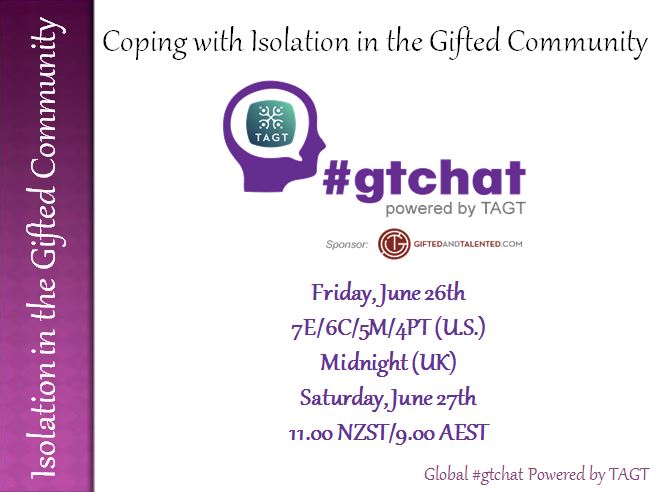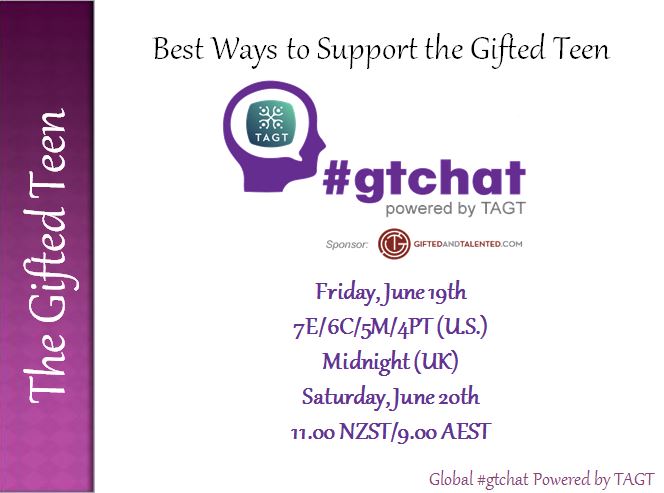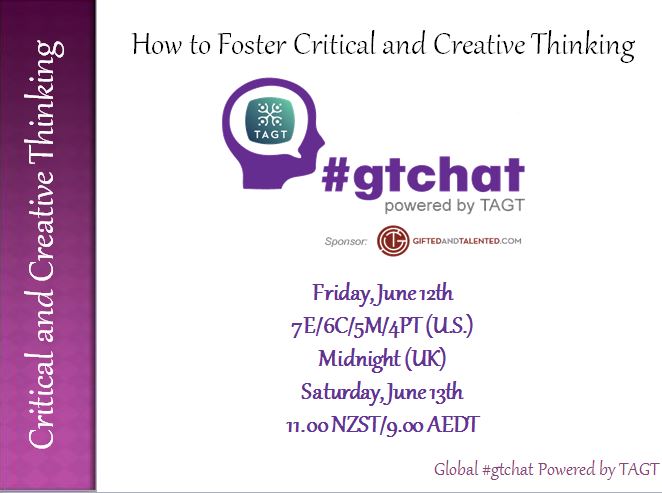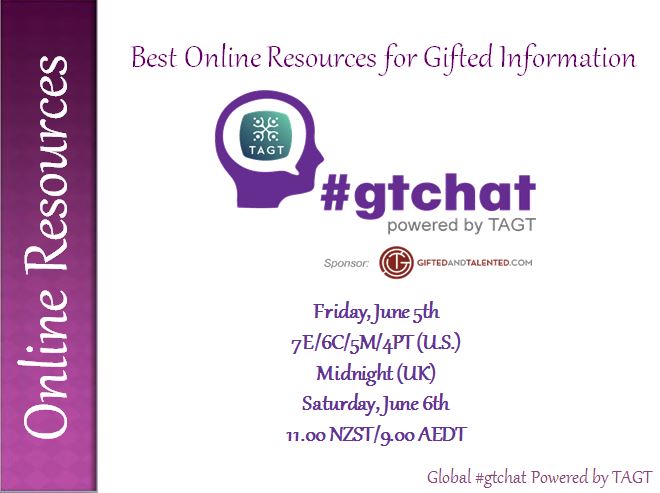Sometimes communication can be a bit tricky when you only have 140 characters with which to work. Clarity is often a casualty in conversation. This week at #gtchat, we gained a new appreciation for the limitations imposed by using a micro-blogging platform to discuss a nuanced topic like ‘isolation’. Although the intent of several questions was to consider isolation within community, some participants in the chat interpreted it to be isolation from the greater community. Facilitation of comments that sometimes can feel like a flash mob of words at the rate of a 500 tweets in an hour is difficult at best and sometimes near impossible. However, I and TAGT are pleased to provide a forum where all viewpoints are heard and valued.
Members of the gifted community often experience feelings of isolation. The scarcity of identification in any one geographical area may impede an individual’s discovery of the gifted community. So, too, diversity on the intellectual spectrum may lead to unintended isolation within the community. Isolation can also be a choice. Gifted people may become uncomfortable with those they feel don’t understand them; they tire of pretense.
Teachers of gifted students can face many obstacles when attempting to interact or collaborate with colleagues. Many people outside of education do not realize that myths about gifted education and giftedness in general can affect teachers of gifted, too. Teachers in gifted programs are often excluded in the decision-making process regarding their students as well as in the identification process.
How can teachers and parents help their gifted kids overcome isolation and find their tribe? Time for peer interaction among gifted students needs to be allotted every day. Extra-curricular activities such as creative and academic competitions can be a good way to overcome isolation. Teachers and parents can provide opportunities for gifted kids to work with older students and mentors.
Parents, too, may experience feelings of isolation. To help with this situation, they should seek out other parents with gifted children as there is strength in numbers. They can also form support groups. Parent volunteers often meet and build networks when supporting their children at school. Many parents report finding online support and friendship when isolation is due to geographical reasons.
Finally, we turned our attention to whether or not isolation always implies loneliness. Are there positive aspects to isolation? Many members of the gifted community report finding solace in isolation; time for intellectual rest. In regard to children, it is important for adults to determine a child’s feelings; is it solitude or loneliness? They may be seeking ‘alone’ time for a reason. For more from this chat, a transcript may be found at Storify.
Global #gtchat Powered by the Texas Association for the Gifted and Talented and sponsored by GiftedandTalented.com is a weekly chat on Twitter. Join us Fridays at 7E/6C/5M/4P in the U.S., Midnight in the UK and Saturdays 11 AM NZST/9 AM AEST to discuss current topics in the gifted community and meet experts in the field. Transcripts of our weekly chats can be found at Storify. Our Facebook Page provides information on the chat and news & information regarding the gifted community. Also, checkout our Pinterest Page and Playlist on YouTube.
 About the author: Lisa Conrad is the Moderator of Global #gtchat Powered by TAGT and Social Media Manager of the Global #gtchat Community. She is a longtime advocate for gifted children and also blogs at Gifted Parenting Support. Lisa can be contacted at: gtchatmod@gmail.com
About the author: Lisa Conrad is the Moderator of Global #gtchat Powered by TAGT and Social Media Manager of the Global #gtchat Community. She is a longtime advocate for gifted children and also blogs at Gifted Parenting Support. Lisa can be contacted at: gtchatmod@gmail.com
Links:
The Challenges of Being Gifted in a Rural Community
Gifted Isolation or Gifted Community?
AUS: Multi-level Selective Classes for Gifted Students (pdf)
Understanding and Encouraging the Exceptionally Gifted (1985)
Friendship Factors in Gifted Children
Why Parents of Gifted Children Feel Isolated and Alone
Helping the Introverted and Talented Child
Intellectual Giftedness at Wikipedia (see Isolation)
Dabrowski’s Theory & Existential Depression in Gifted Children & Adults
Discussion on Genius & Intelligence: Interview with Arthur Jensen (slideshare)
Factors in the Social Adjustment & Social Acceptability of Extremely Gifted Children
Are Rural Needs Different in Gifted Education?
Myths, Arguments and Red Herrings…
I’ll Trade You One Gifted Child
Gifted Conferences, Events and Gatherings
My Gifted Child Wants More Friends: What Can I Do? (Slideshare)
Why do I need to make friends? (YouTube)
So Apparently There Are 4 Kinds of Introversion
The Most Powerful 8 Minutes for Student Engagement
World Council for Gifted and Talented Children Biennial Conference
New Zealand Gifted Awareness Week Blog Tour 2015
Graphic courtesy of Lisa Conrad.




